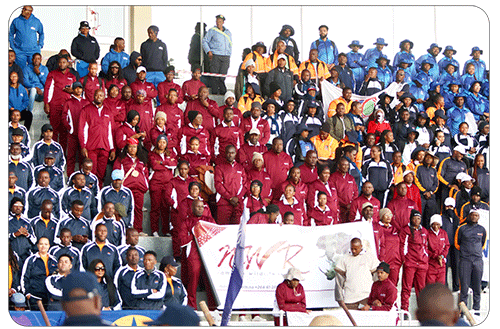Namibia’s largely monopolistic market structure and the dominant public sector create an uneven playing field to the detriment of the private sector.
A recent World Bank report notes that dominance by State-Owned Enterprises (SOEs) in a small economy such as Namibia creates an anti-competitive effect.
This, the banks said, is particularly so when these SOEs operate in privileged positions in key sectors where private participation could be more efficient and transformative.
According to a World Bank report released last week, the Namibia Country Private Sector Diagnostic (CPSD), there are 22 designated commercial SOEs in the country (out of a total of 81 SOEs) across at least 15 sectors.
“Despite having a much smaller market size than most Organisation for Economic Co-operation and Development (OECD) countries, Namibia has the same number of SOEs as the OECD average,” stated the World Bank.
Moreover, the bank noted Namibian SOEs have 90% to 100% of the market share in electricity generation and import, fixed-line telecommunication services, postal services (other than couriers), air operation infrastructure, maritime transport infrastructure, and railway transportation, road infrastructure, water supply and mobile telecommunication.
The World Bank, an international financial institution providing loans and grants, pointed out that over four-fifths (82%) of all recorded SOE losses in Namibia were due to Air Namibia, TransNamib and the Roads Contractor Company (RCC). The CPSD, which aims to identify near and medium-term reform opportunities to revitalise the private sector and help reposition Namibia’s growth, advised that given the small domestic market size, overall efficiency and productivity gains could be achieved by carefully delineating sectors able to benefit from private participation and sectors where existing SOE performance could be enhanced.
The diagnostic stated that addressing crosscutting constraints will not only create a more competitive business environment for the private sector but will also help boost investor confidence.
Outlining some of the constraints caused by SOEs, the bank stated these state organs have key advantages over private firms and enjoy several advantages that inhibit the entry and success of private participants while having sectoral monopolies, including in transport, water, power and tourism.
“SOEs lack a separation between operating and regulatory functions, providing incentives to keep competitors out,” reads the report.
Touching on the lack of separation between operating and regulatory functions, the bank touched on the National Petroleum Corporation of Namibia (Namcor).
According to international best practice, an SOE active in a sector of the economy should not have a simultaneous regulatory function for that sector.
“Yet, legislation assigns both regulatory and operational roles for several key SOEs. For example, Namcor was appointed as an advisor to the mines ministry and has been assisting in regulating the upstream petroleum sector,” it stated.
At the same time, Namcor is also involved in an upstream exploration licensing and is an active shareholder in new oil exploration projects led by the Canadian Reconnaissance Energy Africa, Shell and TotalEnergies.
According to the bank, this creates a conflict of interest.
Meanwhile, the bank noted that on the downstream side, Namcor is managing the National Oil Storage Facility and erecting service stations across the country, while also advising the mines ministry on various regulatory issues, including the fuel price.
This, the World Bank emphasised, is despite Namcor being the recipient of a significant portion of the fuel levy.
Priority reforms
Some of the priority reforms proposed by the World Bank to address crosscutting constraints are to level the playing field between the SOEs and the private sector, and also to improve service delivery across the public enterprise portfolio, particularly network companies.



